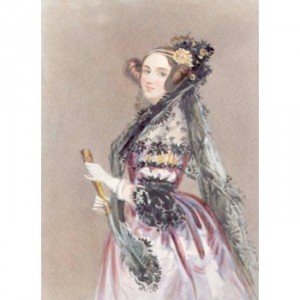Tomorrow, October 7 is Ada Lovelace Day, to commemorate the work of women in science, technology, engineering, and mathematics.
For those who want to participate, there are a couple of options. You can blog about a woman in the STEM field who has inspired you to become what you are today. You can participate in events in your area that celebrate women in technology. And you can take the time to learn about the contributions that women have made to the field.
The stereotypes about women in science and technology persist that it's "men's work." And indeed, in some respects that has become a self-fulfilling prophecy. Women are still disproportionately underrepresented in STEM majors at school and in STEM careers:
- Girls comprised 46% of Advanced Placement (AP) Calculus test-takers, but only 19% of AP Computer Science test-takers.
- Women hold 56% of all professional occupations in the U.S. workforce, but only 25% of IT occupations. Only 11% of executives at Fortune 500 tech companies are women.
- In 2009, just 18% of undergraduate Computing and Information Sciences degrees were awarded to women; in 1985, women earned 37% of these degrees (via NCWIT)
But it's crucial to "change the ratio" and to encourage more girls and women to pursue STEM education and careers. (One encouraging sign was last year's Google Science Fair, whose top prizes went to American girls.) Part how to do this involves being able to point to female role models and acknowledge their contributions to the field.
That's why an act as simple as blogging on Ada Lovelace Day is important. As it stands, many people cannot name a single female scientist or engineer or mathematician. (Or, if they can name one, it's Marie Curie.) Indeed, many have never heard of Ada Lovelace, even though she's credited with writing the first computer program.


